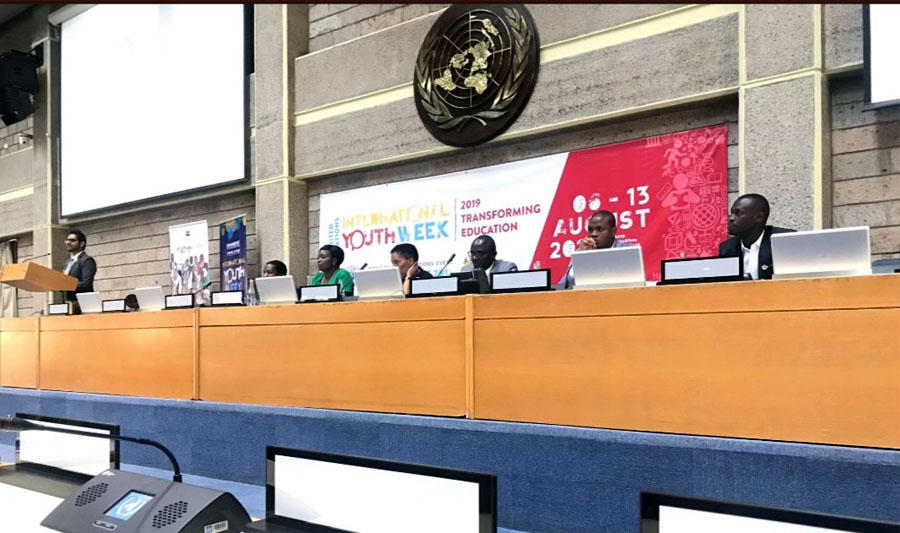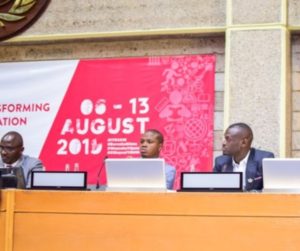Make or Break: Can the Education System Help Spark Agricultural Transformation?

International Youth Day (IYD), a United Nations initiative, is commemorated yearly on 12 August to bring to the fore youth’s pivotal role in accelerating progress toward global goals. In addition, the day is meant to draw the attention of stakeholders and leaders to the pertinent challenges faced by the world’s youth. As highlighted by UNESCO, one issue that deserves due concern is the need for the education system to prepare learners to meet the challenges of the present and to help them maximize future opportunities. That is why this year’s International Youth Day celebrations focused on the theme of “Transforming Education.”

Figure 1 Victor Mugo, 2nd right one of the speakers at the International Youth Day
In Nairobi, Kenya, Victor Mugo, who is part of the DAPA Africa team at CIAT, addressed more than 1,000 youth at UN offices in Nairobi (UNON) on transforming the education system to catalyze agricultural transformation. He noted that a disconnect existed between what was taught in the curriculum and the relevant skills that youth needed to thrive in society. This can be explained by the fact that although numerous graduates are looking for employment opportunities, employers complain that these graduates lack the right skills in the labor market.
In the context of the agricultural sector, which holds tremendous opportunities for youth, he noted that significant transformation was required in the education system to first change the negative perception about the sector from a high-risk, low-paying, and incredibly difficult job; a solitary struggle to survive; and a ticket to poverty. Second, he suggested that the education system should work on empowering graduates with the requisite skills that are relevant for the labor market and that spur entrepreneurship and innovation. Last, he noted that education should prepare youth for the fourth industrial revolution and the future of agriculture.
The education system should therefore expose students to data-driven digital agricultural solutions such as robotics, artificial intelligence, etc. The education system should also adapt to help solve the challenges of the present and the future such as climate change.
